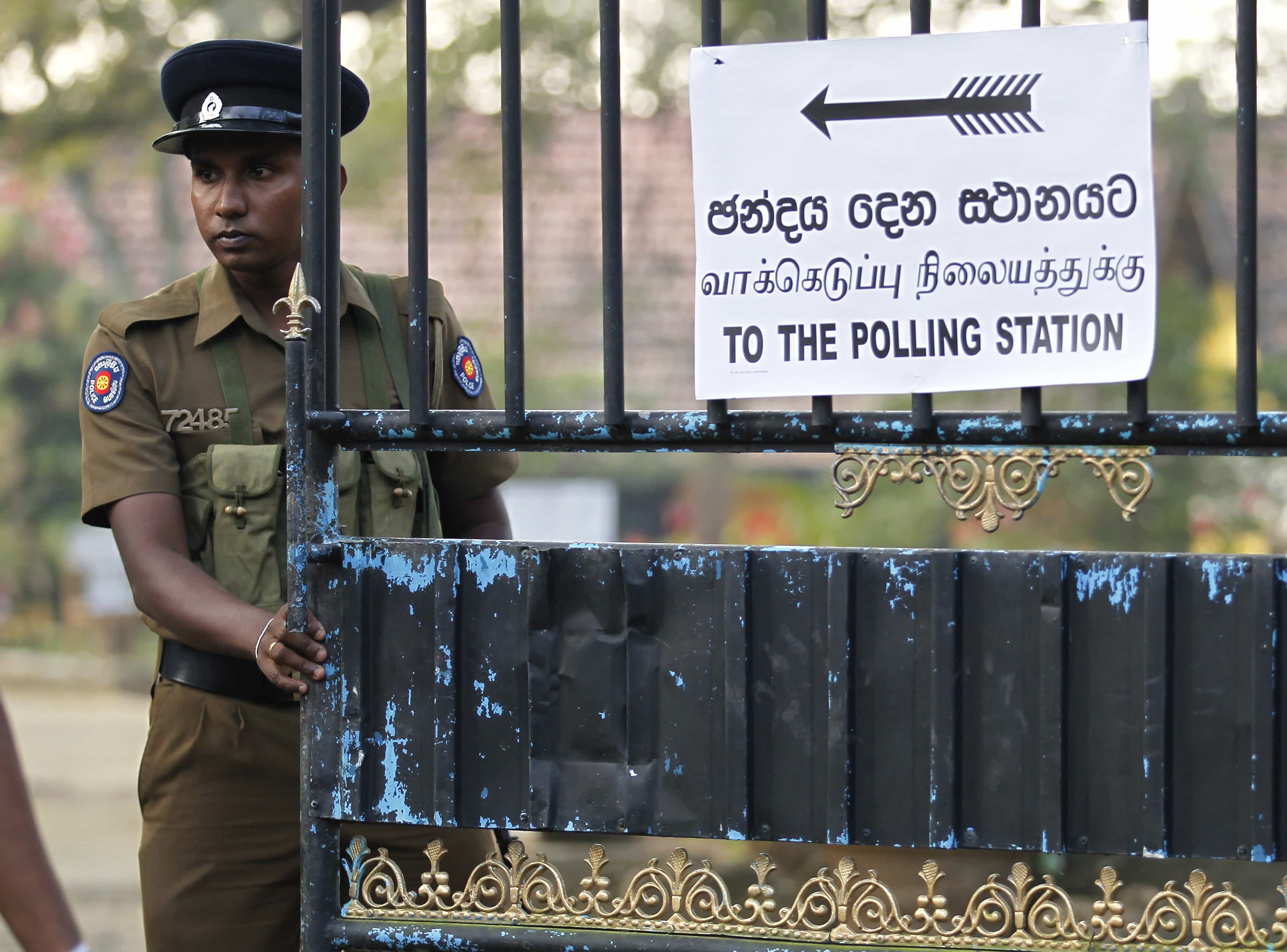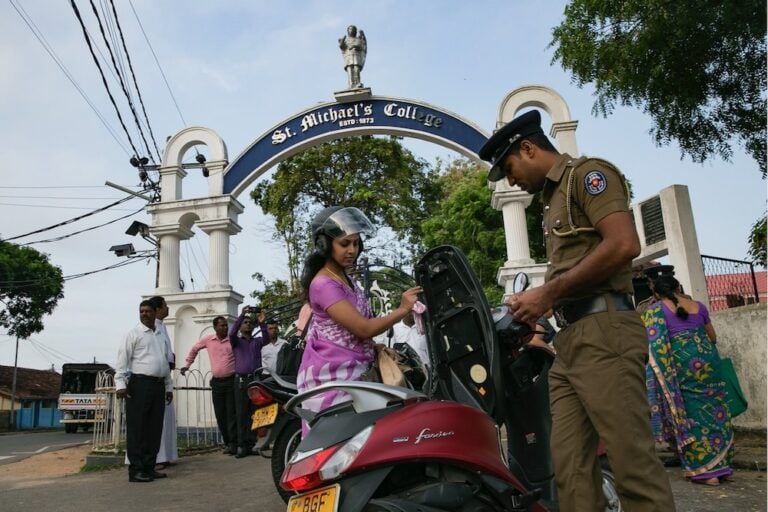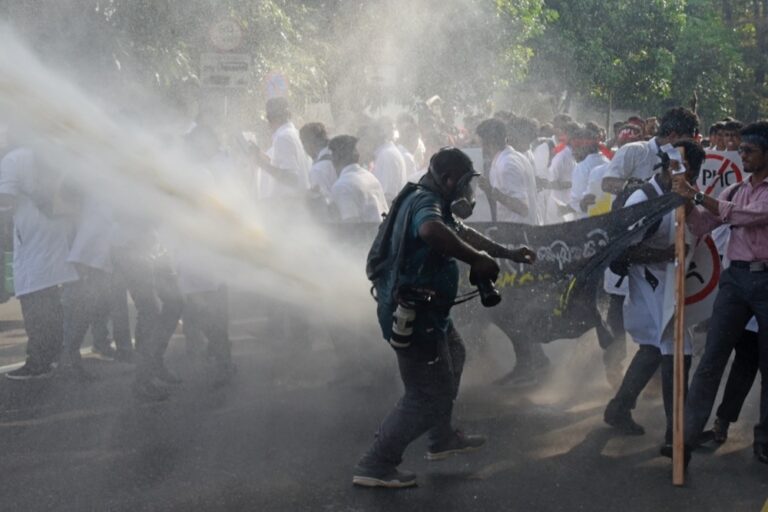Today is a stark reminder of the issues facing press freedom in Sri Lanka, as 8 January also marks the fifth anniversary of the murder of journalist Lasantha Wickrematunge.
This statement was originally published on ifj.org on 8 January 2015.
The International Federation of Journalists (IFJ) expresses its concern over an escalation of violence ahead of the Sri Lankan presidential election today and reiterates its call to ensure media freedom and the safety of journalists during and after the election.
Today, Sri Lanka votes for a new president with the incumbent president, Mahinda Rajapaksha, seeking a third-term in the office after calling a snap election in November two years ahead of schedule. Maithripala Sirisena has been named as the main opposition contender and has the support of the main opposition party, as well as the major parties representing the country’s ethnic Tamil and Muslim minorities.
The IFJ has received reports of a surge of election-related violence in the build-up to the election; as well as reports of alleged misuse of state-owned media. Amid other reports that state media is openly calling people to vote for President Rajapaksa, the country’s election commissioner has issued warnings against several state media outlets to desist from broadcasting election “propaganda”.
An election violence monitoring report, by the Centre for Monitoring Election Violence (CMEV) stated that as of January 6, there were at least 237 “major incidents” and 183 “minor incidents” during the campaigning period, including dozens of cases of assaults, intimidation or damage to property. Of those attacks, at least 22 included a firearm. The CMEV also said there was “unparalleled misuse of state resources and media” by the ruling party.
Reports suggest troops have been deployed to the northern Tamil-dominated Wanni region and former warzone ahead of today’s election – a move that would contravene election laws in Sri Lanka. Police are responsible for monitoring voting centres.
With a history of violence and civil unrest in the country’s elections, including actions against the media, the IFJ is urging the government and the Department of Elections to deploy all possible measures to ensure media freedom and the safety of journalists.
The IFJ Asia-Pacific office said: “The world is watching Sri Lanka and we call on government to respect freedom of expression and the right of the media to present all voices which is so critical to the democratic process of the country.”
The IFJ also urges the Election Commissioner to take necessary actions to ensure a free and fair election, and create an atmosphere free of violence and intimidation for a free and fair election that demonstrates a truthful public opinion. It also strongly urges all media and journalists in Sri Lanka to remain professional in their reporting and code of conduct and be vigilant for their individual safety during this time.
Since 2005, more than 80 Sri Lankan journalists have been forced into exile. Others like respected cartoonist Prageeth Eknaligoda have simply disappeared.
The IFJ Asia-Pacific office said: “Today is also a stark reminder of the issues facing press freedom in Sri Lanka, as January 8 also marks the fifth anniversary of the murder of respected journalist and Sunday Leader editor, Lasantha Wickrematunge. This case today remains an emblematic case for Sri Lanka’s battle for justice and press freedom.”
The IFJ Asia Pacific said: “Given the history of violence in Sri Lankan elections in the past and the IFJ’s documented national pattern of intimidation and retribution toward independent media or voices critical to the current government, we remain seriously concerned for the well-being of Sri Lanka’s journalists at this time.”
The IFJ said Sri Lankan authorities have a responsibility to ensure that all people in Sri Lanka are able to exercise their right to political participation and freedom of expression without intimidation, threats or violence.
Nearly 15 million people are eligible to vote on Thursday January 8 to elect a president for a six-year term. The poll is expected to be a close contest.



